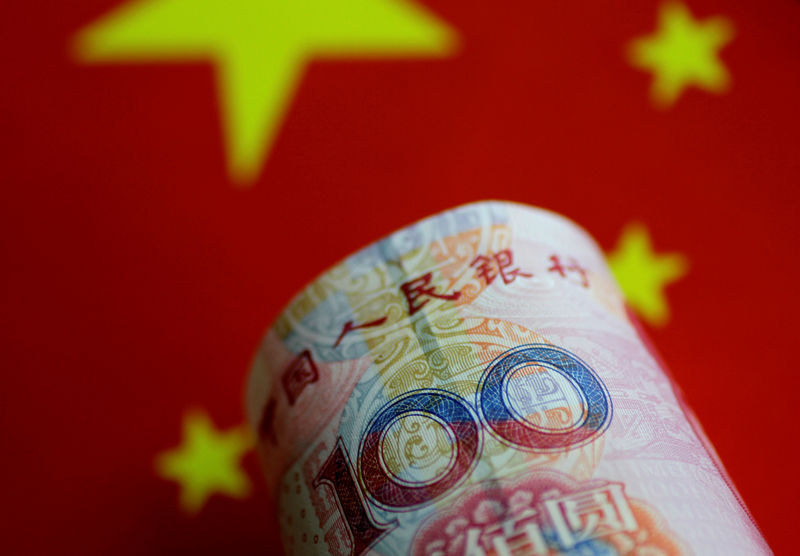BEIJING (Reuters) - China should not allow the yuan to fall below 7 per dollar or attempts to stabilize the currency will become more costly on the country's foreign exchange reserves, Sheng Songcheng, an adviser to the People's Bank of China, said on Saturday.
Policy insiders told Reuters in October that China was likely to use its vast currency reserves to stop any precipitous fall through the psychologically important level of 7 yuan per dollar [CNY=CFXS] because it could risk triggering speculation and heavy capital outflows.
"If we fall below this crucial point, then we will have to pay a greater cost to stabilize exchange rates," Sheng told a forum in Shanghai, according to financial media website WallStreetcn.com, the event's organizer.
Stabilizing the yuan's exchange rate would require significantly less of China's foreign exchange reserves when the yuan is at 6.7 or 6.8 per dollar but the amounts required would rise sharply if the rate fell below 7, Sheng said.
To spend a certain amount now in order to defend the exchange rate was actually a means of preserving reserves because, if the market expected a fast devaluation, reserves would then be unable to prevent a drop in value, he said.
"The most important thing for us right now is to stabilize exchange rates and is not so-called exchange rate reform or the internationalization of the renminbi," he said.
The Chinese currency has lost nearly 7 percent of its value to the dollar since the beginning of this year and is approaching the 7 per dollar level, which was last hit during the global financial crisis in 2008.
